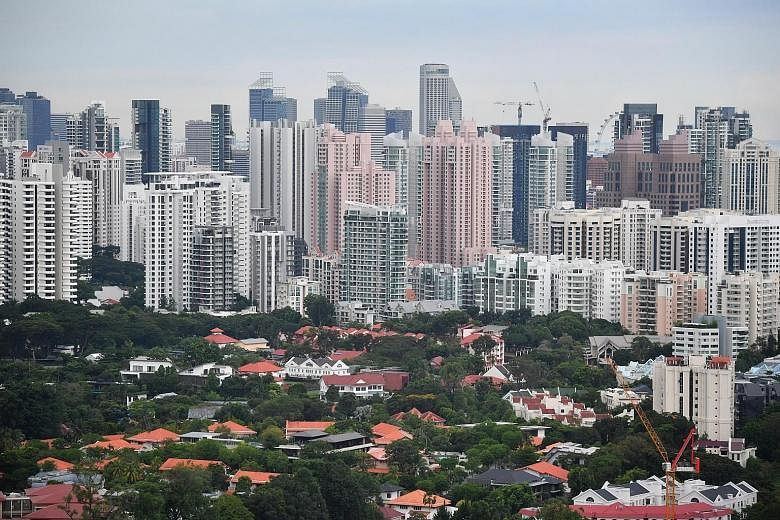Some Singaporeans living in private estates or bigger homes may be severely affected by the Covid-19 crisis, but are unable to qualify for certain support schemes as eligibility is pegged to the annual value of the homes they live in.
Three MPs yesterday urged the Government to review this criterion of means-testing Singaporeans for financial aid to ensure these people are not left out inadvertently.
For instance, newly divorced Singaporeans, single parents returning to live with their elderly parents, and soon-to-be married children waiting to move into Build-To-Order flats under construction may not qualify for schemes like the Self-Employed Person Income Relief Scheme (Sirs) because of the criterion, said Mr Christopher de Souza (Holland-Bukit Timah GRC) during the debate on the President's Address.
He called for support schemes to assess eligibility based on home ownership, rather than the value and type of residence.
Among other criteria, Sirs is open to those who earn a net trade income of no more than $100,000, live in a property with an annual value of no more than $21,000, and do not own two or more properties.
The scheme helps the self-employed who have been affected by the pandemic. Those who do not meet the criteria can appeal to the authorities, who will assess their eligibility on a case-by-case basis.
Similarly, Mr Lim Biow Chuan (Mountbatten) said the policy of pegging social assistance to annual values of properties should be reviewed, even as he agreed that the lower-income and the needy should get more help.
He pointed out that citizens suffering from loss of income may need help, regardless of their housing type, to pay for family expenses such as medical bills, mortgage instalments or school fees.
They may also not be able to sell their home during a financial crisis, he added.
"Why do we have the expectation that people don't deserve help simply because they have bigger homes of a higher annual value? Should we not look at their loss of income? Should we also insist that these people must sell their homes before they get the short-term help specifically targeted at those affected by Covid-19?" he asked.
Mr Henry Kwek (Kebun Baru) said it would be timely for the Government to adjust policies for groups, including retired seniors who are asset-rich but cash-poor, and residents older than 50 who are facing uncertainty in their careers.
Different yardsticks can be used to assess eligibility for support schemes, including using a mix of non-housing assets, income and the per capita housing equity of occupants in a house, he suggested.
Mr Kwek also suggested that the Government work with the banking and insurance sectors to create reverse mortgage options for private estates, and allow those who are older than 70 to borrow against their housing equity at a reasonable rate.
"If our people can tap their housing equity effectively, I believe most Singaporeans in the private estates would prefer to stand on their own two feet, instead of relying on government assistance," he said.


